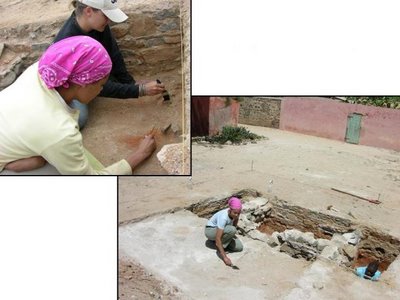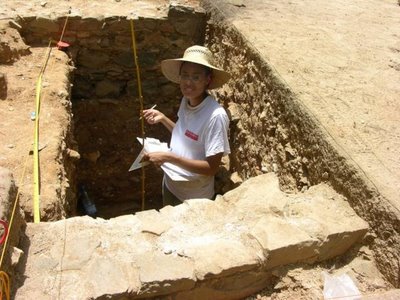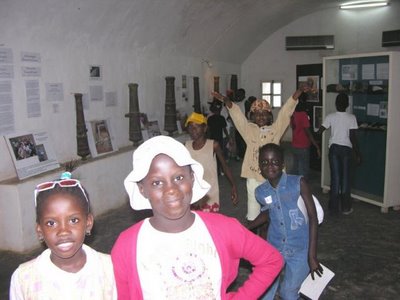

In building a strong market and a competent state at least two elements are needed. First the rulers must feel sufficiently threatened to need the cooperation of some groups typically the rich and powerful in civil society in order to stay in power. Every society in a development transition must acknowledge the value of these centers of power and Uganda is just with in this bracket
 . Secondly, the rich and powerful actors in civil society( Genuine Business People) must find it in their immediate interest to demand the rule of law. The rule of law works for the common good of society.http://www.beyondintractability.org/essay/nation_building/
. Secondly, the rich and powerful actors in civil society( Genuine Business People) must find it in their immediate interest to demand the rule of law. The rule of law works for the common good of society.http://www.beyondintractability.org/essay/nation_building/ The object is the need to constrain the state from abusing its power. The state without any counter-weight often has elements whose tendency is domination and especially so in states in a transition to functionality. Is there a group of rich and powerful people in the civil society that threatens the power of the state in Uganda? Reason revolutions fail in Africa and other developing countries is because they are not grounded in any visible ideological doctrine.Structural societal stratfication in economic terms is homogenously peasantry. The elite is a producte of peasantry and just a group of enlightened peasants with no economic power except for potential representation of their tribal or ethnic origin at the center. The reason the cycle of corruption is a constant even with regime changes is because of institutional decay,lack of it and pure stagnation a result of a low quality human resource.
Regime changes in Africa have been violent because there is no sense of ownerhip of property by the majority of the people. The militant group is characterized by a peasant movement manipulated by a small ethnic elite with a seemingly justified cause under a revolution banner.http://www.usyd.edu.au/su/social/elias/state.htm. In Africa ethnic and tribal interests are at the core of politics rather than economic classes due the peasant homogenity. In organized societies, Civil society is important to the extent that powerful groups can constrain the state from abusing its power and demand reforms that protect their property rights. In thinking about powerful actors in Uganda we must emphasize the relationships between and among the donor community, the state, business community and the NGO sector. Has Uganda developed a solid business community strong enough to threaten the state? What is the state of Uganda’s civil society today? Has the business community developed a sufficient voice to question the state? What is currently the most important political consituency in Uganda? Is it the Citizens, the donor community or civil society in relation to the state?
In thinking about powerful actors in Uganda we must emphasize the relationships between and among the donor community, the state, business community and the NGO sector. Has Uganda developed a solid business community strong enough to threaten the state? What is the state of Uganda’s civil society today? Has the business community developed a sufficient voice to question the state? What is currently the most important political consituency in Uganda? Is it the Citizens, the donor community or civil society in relation to the state? In answering these questions I will explain why Uganda suffers from a low momentum of institutional development and an almost unstoppable economic haemorrhage with the current trend. The private sector in Uganda is still small and the powerful and rich politically god-fathered or fused with the state. All private companies doing shoddy work building collapsing classrooms belong to the politicians or their relatives, companies doing shoddy work in building low quality roads in Kampala or any other are accomplices of politicians. There is fusion between those manning the state and the wealthy in Uganda meaning the rich and powerful do not regard the rule of law as important.
In answering these questions I will explain why Uganda suffers from a low momentum of institutional development and an almost unstoppable economic haemorrhage with the current trend. The private sector in Uganda is still small and the powerful and rich politically god-fathered or fused with the state. All private companies doing shoddy work building collapsing classrooms belong to the politicians or their relatives, companies doing shoddy work in building low quality roads in Kampala or any other are accomplices of politicians. There is fusion between those manning the state and the wealthy in Uganda meaning the rich and powerful do not regard the rule of law as important. The civil society which encompasses the Business community in Uganda is mainly what would be termed as the Third Tier in organized societies. In Uganda the business community does not view itself as part of civil society because indeed practically it is not. Those who would champion the cause of civil society are politically connected therefore rich and powerful and fused with the state and their role in society compromised. They do shoddy work and share they proceeds with state managers in return for protection. They therefore do not respect the rule of law and to the contrary the rule of law diminishes their power and wealth.They evade taxes with state protection meaning they do not respect the rule of law and therefore cannot constrain excesses of the state which they are part of by association or default. It is this relationship that fuels and perpetuates corruption.
The civil society which encompasses the Business community in Uganda is mainly what would be termed as the Third Tier in organized societies. In Uganda the business community does not view itself as part of civil society because indeed practically it is not. Those who would champion the cause of civil society are politically connected therefore rich and powerful and fused with the state and their role in society compromised. They do shoddy work and share they proceeds with state managers in return for protection. They therefore do not respect the rule of law and to the contrary the rule of law diminishes their power and wealth.They evade taxes with state protection meaning they do not respect the rule of law and therefore cannot constrain excesses of the state which they are part of by association or default. It is this relationship that fuels and perpetuates corruption.
Regime changes in Africa have been violent because there is no sense of ownerhip of property by the majority of the people. The militant group is characterized by a peasant movement manipulated by a small ethnic elite with a seemingly justified cause under a revolution banner.http://www.usyd.edu.au/su/social/elias/state.htm. In Africa ethnic and tribal interests are at the core of politics rather than economic classes due the peasant homogenity. In organized societies, Civil society is important to the extent that powerful groups can constrain the state from abusing its power and demand reforms that protect their property rights.
 In thinking about powerful actors in Uganda we must emphasize the relationships between and among the donor community, the state, business community and the NGO sector. Has Uganda developed a solid business community strong enough to threaten the state? What is the state of Uganda’s civil society today? Has the business community developed a sufficient voice to question the state? What is currently the most important political consituency in Uganda? Is it the Citizens, the donor community or civil society in relation to the state?
In thinking about powerful actors in Uganda we must emphasize the relationships between and among the donor community, the state, business community and the NGO sector. Has Uganda developed a solid business community strong enough to threaten the state? What is the state of Uganda’s civil society today? Has the business community developed a sufficient voice to question the state? What is currently the most important political consituency in Uganda? Is it the Citizens, the donor community or civil society in relation to the state? In answering these questions I will explain why Uganda suffers from a low momentum of institutional development and an almost unstoppable economic haemorrhage with the current trend. The private sector in Uganda is still small and the powerful and rich politically god-fathered or fused with the state. All private companies doing shoddy work building collapsing classrooms belong to the politicians or their relatives, companies doing shoddy work in building low quality roads in Kampala or any other are accomplices of politicians. There is fusion between those manning the state and the wealthy in Uganda meaning the rich and powerful do not regard the rule of law as important.
In answering these questions I will explain why Uganda suffers from a low momentum of institutional development and an almost unstoppable economic haemorrhage with the current trend. The private sector in Uganda is still small and the powerful and rich politically god-fathered or fused with the state. All private companies doing shoddy work building collapsing classrooms belong to the politicians or their relatives, companies doing shoddy work in building low quality roads in Kampala or any other are accomplices of politicians. There is fusion between those manning the state and the wealthy in Uganda meaning the rich and powerful do not regard the rule of law as important. The civil society which encompasses the Business community in Uganda is mainly what would be termed as the Third Tier in organized societies. In Uganda the business community does not view itself as part of civil society because indeed practically it is not. Those who would champion the cause of civil society are politically connected therefore rich and powerful and fused with the state and their role in society compromised. They do shoddy work and share they proceeds with state managers in return for protection. They therefore do not respect the rule of law and to the contrary the rule of law diminishes their power and wealth.They evade taxes with state protection meaning they do not respect the rule of law and therefore cannot constrain excesses of the state which they are part of by association or default. It is this relationship that fuels and perpetuates corruption.
The civil society which encompasses the Business community in Uganda is mainly what would be termed as the Third Tier in organized societies. In Uganda the business community does not view itself as part of civil society because indeed practically it is not. Those who would champion the cause of civil society are politically connected therefore rich and powerful and fused with the state and their role in society compromised. They do shoddy work and share they proceeds with state managers in return for protection. They therefore do not respect the rule of law and to the contrary the rule of law diminishes their power and wealth.They evade taxes with state protection meaning they do not respect the rule of law and therefore cannot constrain excesses of the state which they are part of by association or default. It is this relationship that fuels and perpetuates corruption.The state is highly donor dependent with official budget support to a tune of approximately 50%. The economic management in Uganda is mainly donor driven with conditional credit facilities and grants from IMF/WB or other bilateral donors. Donor dependence creates a lack of a localized agenda and ownership by government and citizens. A donor driven agenda distorts societal political evolution as it mandates donors a bigger political constituency than the citizens in relation to state. The lack of a localized sense of ownership in a way perpetuates corruption in both the civil and public service as state managers look up to the donor community as a foreign master who calls the shots.
 The citizens can’t question the state because programs do not make them wealthy to have what to protect; they are not participatory and feel their contribution to the function of state is small to question it. In otherwords, the donor is a more important political dynamic to the functioning of state than the citizens because it funds government. 80% of Ugandans have no sense of ownership to question the state except for tribal representation through offices like RDCs or cabinet. Political participation by citizens is simply a tool to help ethnic or religious groups access and control power and not to exercise authority on behalf of citizens but a small and powerful group only accountable to the donor community. Is this good for Institutional building? NO.
The citizens can’t question the state because programs do not make them wealthy to have what to protect; they are not participatory and feel their contribution to the function of state is small to question it. In otherwords, the donor is a more important political dynamic to the functioning of state than the citizens because it funds government. 80% of Ugandans have no sense of ownership to question the state except for tribal representation through offices like RDCs or cabinet. Political participation by citizens is simply a tool to help ethnic or religious groups access and control power and not to exercise authority on behalf of citizens but a small and powerful group only accountable to the donor community. Is this good for Institutional building? NO.The face of civil society in Uganda today is the NGO Sector which is equally heavily donor dependent just like the state.But who initiates NGO formation? What is the membership and ownership? It still points to political actors who are manning the state(Read the Global Fund). You actually have a very homogenous conglomeration of power actors from state/NGO sector converging in interest thus institutional decay or stagnation. The NGO sector also lacks a localized agenda. It is controlled to some extent by the state through legislation limiting its scope as well as donors who dictate what policy platform to articulate. It is viewed as a partner in theory but as a competitor in practice for the same donor account. Most NGOs are set up to improve the political profile of politicians. This can be exemplified by the Global fund scandal in Uganda and the NGOs that were involved. The global fund helps explain the impact of donors on institutional growth in the developing world. Donors cannot love us more than we love ourselves and common sense dictates that they run their agenda here.
In summary, Uganda like many other developing countries need to launch a national agenda. There is need to own our destiny and our friends in the donor community must be made to understand we have that will. This calls for an intellectual revolution and decolonization, establishing national think tanks to examine where things went wrong. Unfortunately, at the moment, everything seems to be left to fate. We have a duty in our time to re-define our role as the elite.











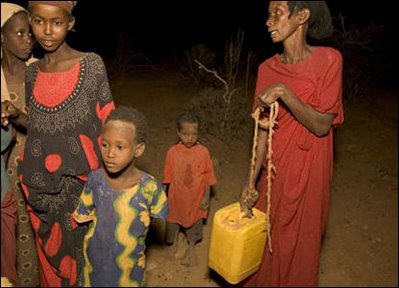







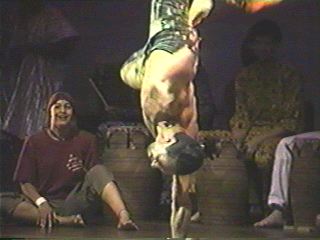




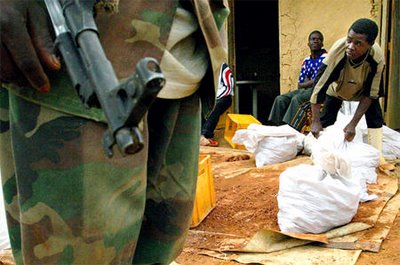
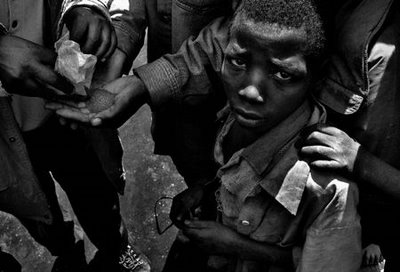




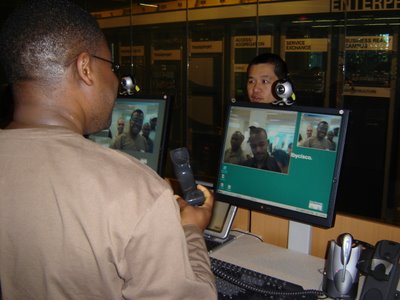


 Uganda is facing an energy crisis that has resulted into massive economic depression. Tanzania like Uganda is facing reduced power supply as result of drought. Kenya which has depended more on thermal power for sometime now and previously imported power from Uganda's Owen Falls Dam, is soon to be an exporter of power to Uganda in the short term.Among the three East African,states Kenya is the only state which seems to have survived this energy Tsunami.Overall-Sub-Saharan Africa is facing an energy deficit which threatens its relatively improving investment climate. Overall, good governance that has been a key issue of contention for improved investment opportunities is being addressed in many countries. The prospects of over conflicts are waning except in the horn of Africa. The government of Uganda is currently talking peace in Juba with the Lord Resistance Army with the mediation of Dr.Riek Machar the Vice President of South Sudan (GoSS). Elections in the Democratic Republic of Congo point to a more civilized engagement by political opponents in the post election period.In Burundi, former beligerents are now looking at another approach of constructive engagement to rebuild the country from years of war.
Uganda is facing an energy crisis that has resulted into massive economic depression. Tanzania like Uganda is facing reduced power supply as result of drought. Kenya which has depended more on thermal power for sometime now and previously imported power from Uganda's Owen Falls Dam, is soon to be an exporter of power to Uganda in the short term.Among the three East African,states Kenya is the only state which seems to have survived this energy Tsunami.Overall-Sub-Saharan Africa is facing an energy deficit which threatens its relatively improving investment climate. Overall, good governance that has been a key issue of contention for improved investment opportunities is being addressed in many countries. The prospects of over conflicts are waning except in the horn of Africa. The government of Uganda is currently talking peace in Juba with the Lord Resistance Army with the mediation of Dr.Riek Machar the Vice President of South Sudan (GoSS). Elections in the Democratic Republic of Congo point to a more civilized engagement by political opponents in the post election period.In Burundi, former beligerents are now looking at another approach of constructive engagement to rebuild the country from years of war.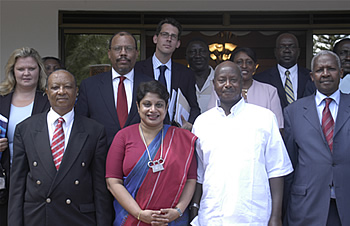
 Uganda's case has been different. Totally donor dependent it would be hard to imagine how the country could run without donor support. Public interventions have not been part of the blue print. It is the IMF/World Bank that has run the show unleashing market forces in an economy that needs serious rehabilation. The knee-jack response to the energy crisis through termal generation points to a government that has been in slumber for so long. Since the commissioning of the Owne Falls Dam in 1954 by the Colonial Government there has not been any structural response to the growing energy demand. The Nalubale Extension was built premised on wrong Engineering design albeit certified by government engineers. Intelligence has it that the Egyptians with their strong diplomatic foot work in Washington have consitently sabotaged any effort to construct any Dam along the Nile. That private investors can't stand in the way of a state looking at the Nile as its stategic security interest should not be magic to the Uganda government. To many observers, it is very puzzling that the Ugandan government is aloof at the potential of sabotage by the Egyptian Intelligence with a resident hydrologist at the rank of an Ambassador in Jinja.
Uganda's case has been different. Totally donor dependent it would be hard to imagine how the country could run without donor support. Public interventions have not been part of the blue print. It is the IMF/World Bank that has run the show unleashing market forces in an economy that needs serious rehabilation. The knee-jack response to the energy crisis through termal generation points to a government that has been in slumber for so long. Since the commissioning of the Owne Falls Dam in 1954 by the Colonial Government there has not been any structural response to the growing energy demand. The Nalubale Extension was built premised on wrong Engineering design albeit certified by government engineers. Intelligence has it that the Egyptians with their strong diplomatic foot work in Washington have consitently sabotaged any effort to construct any Dam along the Nile. That private investors can't stand in the way of a state looking at the Nile as its stategic security interest should not be magic to the Uganda government. To many observers, it is very puzzling that the Ugandan government is aloof at the potential of sabotage by the Egyptian Intelligence with a resident hydrologist at the rank of an Ambassador in Jinja.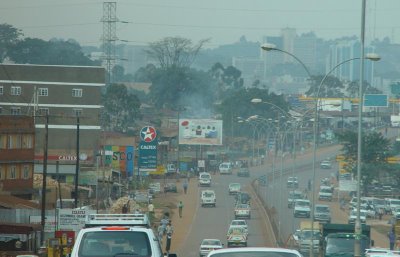







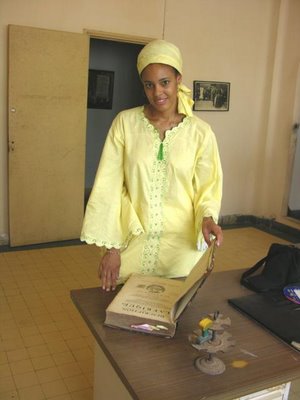

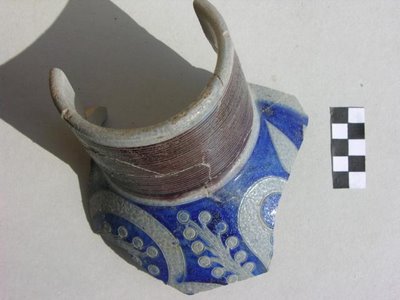 and its beauty. The chinese have and yes we can. The world faces an ecological catastrophe if America's cultural imperialism is not checked by other cultures.
and its beauty. The chinese have and yes we can. The world faces an ecological catastrophe if America's cultural imperialism is not checked by other cultures. 